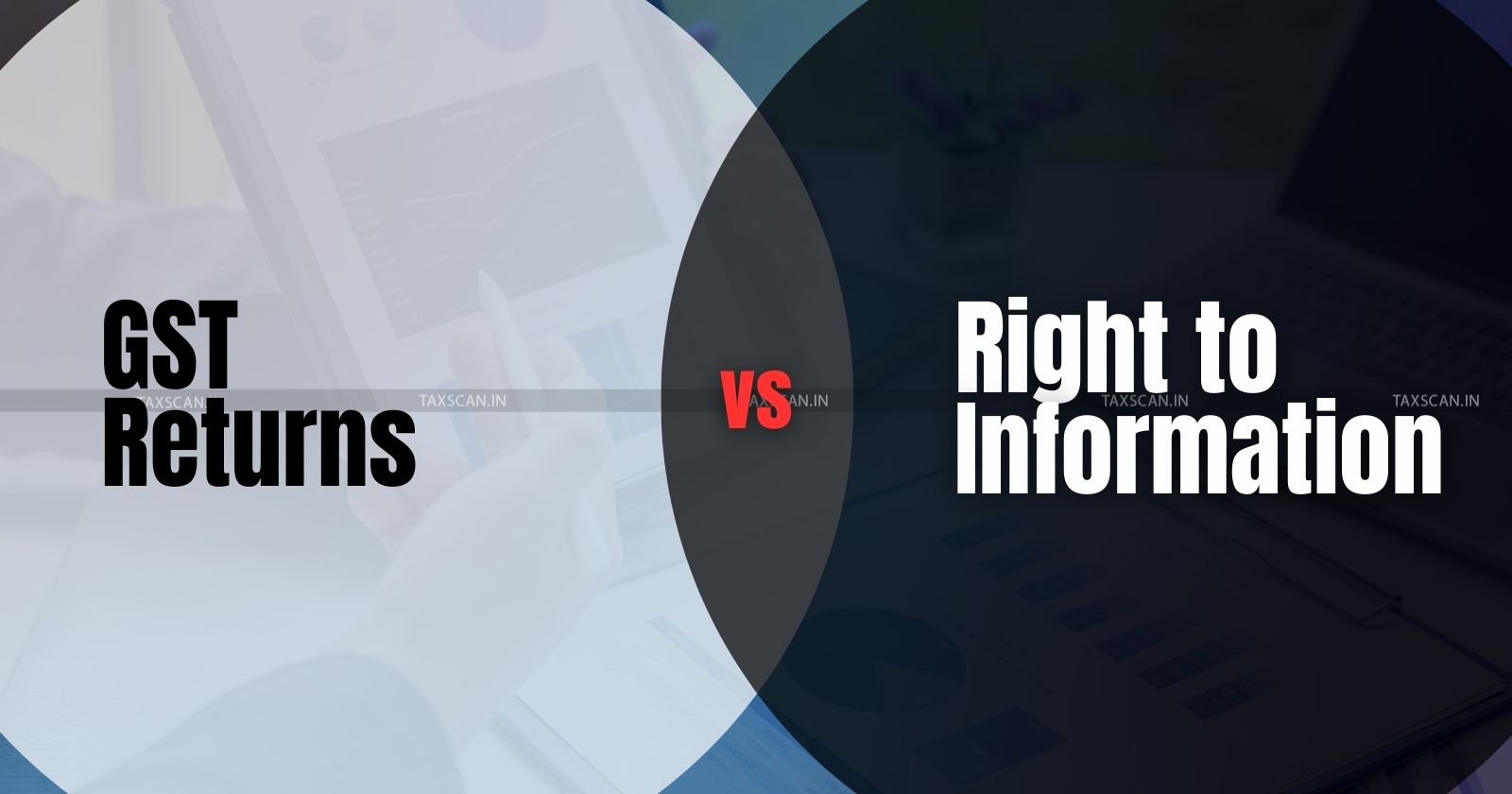Are GST Returns Private Documents or can be Disclosed under RTI? S.158 of GST Act vs S. 8 of RTI Act
A GST return cannot be disclosed under the RTI Act because Section 158 of the GST Act strictly prohibits such disclosure.

A GST return is a mandatory filing required from registered business entities in India, submitted to the Goods and Services Tax ( GST ) department. This document includes comprehensive records of a taxpayer's income, sales, purchases, and expenses relevant to GST compliance.
A critical question arises: Are GST returns private documents, or can they be disclosed under the Right to Information ( RTI ) Act?
Under the RTI Act, citizens have the right to seek information from any public authority within the country. However, there are specific exemptions to this right. For example, data that significantly impacts national security cannot be shared under the RTI framework.
Unlike sensitive information affecting national security, GST returns do not inherently fall into this category. Nevertheless, Section 158 of the GST Act explicitly prohibits the sharing of GST returns with citizens who request access to this data.
GST Returns: Confidential or Public?
A public document is typically defined as one that is prepared or filed by a public official and is available for public inspection. In contrast, GST returns are filed by individual taxpayers, not by public officials, and their contents are generally not accessible to the public. This distinction sets them apart from other public documents, such as land records or court judgments.
Be a GST Expert: Get Essential Questions, Key Judgements and Practical Guide, Click Here
To ascertain whether GST returns are classified as confidential or public data, we refer to the Central GST Act. According to Section 158, all details contained in any statements, returns, accounts, or documents submitted under the Act are not to be disclosed by public servants, with specific exceptions. Disclosure is permitted only under certain circumstances, such as when required by other laws, for verification purposes, in service of notices or demands, or for court proceedings.
Section 158 of Central GST Act vs RTI Act
The provisions of the GST Act and the RTI Act reflect contrasting approaches to information sharing management. The Section 158 prioritizes the confidentiality of data submitted by taxpayers, strictly prohibiting officials from disclosing information, including GST returns.
Conversely, the RTI Act empowers citizens to access information from public offices, thereby promoting accountability within government operations. However, the RTI Act also includes specific exemptions under Section 8, which covers sensitive issues such as national security, personal privacy, and commercial confidence—often shielding financial information from disclosure.
The GST Act is considered a special law, while the RTI Act functions as a general law. Therefore, when conflicts occur between these two statutes, the special law takes precedence over the general law. This principle is rooted in the legal maxim “generalia specialibus non derogant,” which means that general provisions do not override specific provisions.
Recent Update
In a recent ruling, the Central Information Commission (CIC) determined that details of GST returns cannot be disclosed under Section 158(1) of the Central Goods and Services Tax Act (CGST Act), 2017. The CIC clarified that special laws cannot be overridden by general laws, referencing the Supreme Court's decision in Chandra Prakash Tiwari v. Shakuntala Shukla.
A public document is typically defined as one that is prepared or filed by a public official and is available for public inspection. In contrast, GST returns are filed by individual taxpayers, not by public officials, and their contents are generally not accessible to the public. This distinction sets them apart from other public documents, such as land records or court judgments.
Be a GST Expert: Get Essential Questions, Key Judgements and Practical Guide, Click Here
After reviewing the case, the CIC affirmed the respondent's position and referred to a Delhi High Court ruling (W.P.(C) 340/2023) that highlighted the precedence of special provisions over general laws, specifically distinguishing between the Right to Information Act, 2005, as a general law, and Section 138 of the Income Tax Act, 1961 as a special provision. The CIC emphasized that specific procedures for disclosing information about third parties under the Income Tax Act cannot be applied under the general RTI Act.
Read more: GST Return Details Cannot be Furnished u/s 158(1) of CGST Act: CIC in RTI Matter
Support our journalism by subscribing to Taxscan premium. Follow us on Telegram for quick updates


